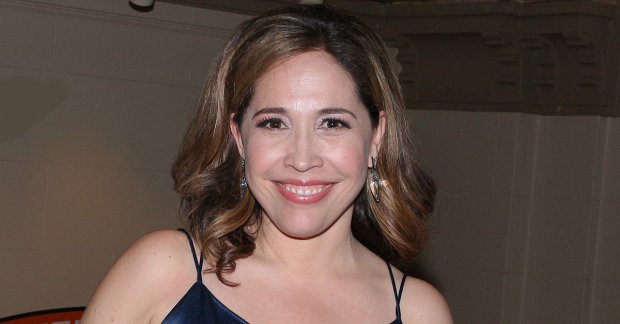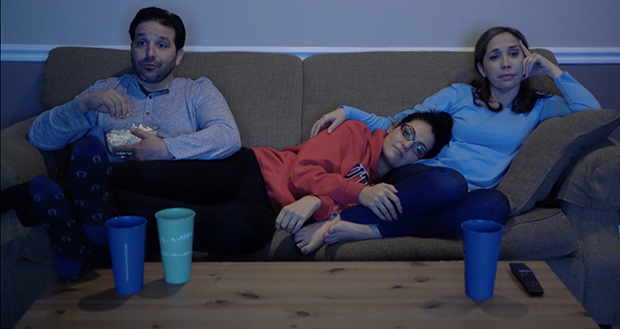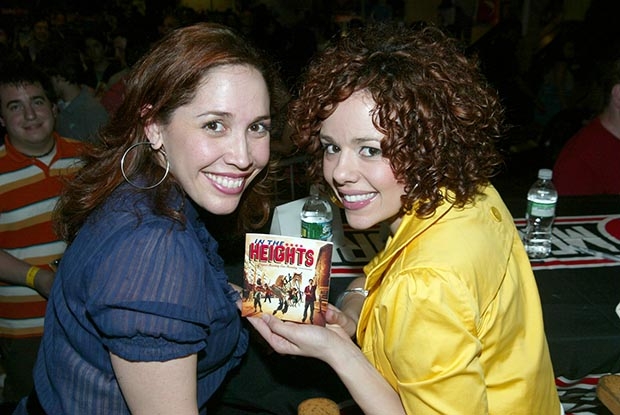Interview: Andréa Burns on HBO Max's "Generation Por Qué?" and the Multiplicity of the Latinx Community
Burns discusses how the show emphasizes humor and real life over life lessons.
When Andréa Burns received a letter from Jacqueline Pereda in 2018, she didn't expect it to be the gateway to her latest role. Pereda, a writer, producer, and comedian of Cuban descent (truTV, A Perfect Murder), expressed her admiration for the In the Heights and On Your Feet actor and also included a script of Generation Por Qué? She wanted Burns to play her mother.
Generation Por Qué?, now on HBO Max, follows Jackie Pérez, a first-generation Cuban actor pursuing her dreams in New York City while enduring her very Cuban parents who vote conservative and live in New Jersey. Generation Por Qué? was a 2020 Official Selection at Seriesfest and The Women in Comedy Festival. The short-form web series was also a semifinalist for the 2017 Sundance New Voices Lab.
"When you receive a script from someone you don't know, you never know what you're going to get, but I read this treatment and loved it," shares Burns.
"I didn't see that type of Latinx story represented on TV, so I obviously wanted to make this."
Here she discusses playing a character different than her own, the multiplicity of the Latinx community, how this project will resonate with families of all backgrounds, and more.

(© David Gordon)
This conversation has been condensed and edited for clarity.
Were you interested in this project because it was an original short?
This was a pre-pandemic project. A friend of mine who is a casting director knew one of the producers and put us in touch. After On Your Feet! I got lots of offers to play mothers. I'm very selective about the projects I take on, especially when it comes to Latinx characters because it's very important to me that the people being represented are actual people, that it's not about some stereotype or some imagined representation.
I wasn't sure if I could take it on. Still, being a first-generation kid too, I really connected to it and related to her story of being a woman in New York who has to live with one foot in her American lifestyle, trying to be a young person in the United States in the major city, trying to find love and connection — and also being the daughter of immigrants and having such roots to her parents' country, which in this case is Cuba. My mother is from Venezuela, and my father is Jewish from New York. But I always felt like I was walking in between both worlds and translating between both worlds. I often tried to explain to my mom that her old-school values might not be the same as my friends' or the values of the kids in our country.
People of color tend to like their families, but we vacillate between liking them and thinking they're so overbearing in many instances.
Yes! We see many dysfunctions on TV [Latinx families], and although families can be overbearing, we're still very close to them. In this particular family, Jackie is very close to her parents but has opposing political views. But there is no way in this family setting that she's going to decide to never speak to her parents again because of the way they voted. This is something that we've heard a lot about in the past few years. I loved the idea that these upwardly mobile conservatives were being represented because I know so many of them. That's not a monolith either, and there are all sorts of reasons and deep values history tied to political beliefs for everyone, particularly for Latin American folks. That really spoke to me because I grew up in Miami. Even though my mother is from Venezuela, I grew up with many Cuban friends and their parents. I'd say I'm Venezuelan, but I have a Cuban heart.
Do you find any unique challenges with playing someone who might share similarities with you or your background instead of someone more distant?
My character is more similar to the generation above me. Those of us who are often of the age where we're playing the parents and the older figures, we're referring to everything that we witnessed as young people and kids in our childhood. It was very easy for me because I feel like I step into my mom's shoes and the ladies I grew up around. A piece of my mother is in there too! It's quite fun because I feel like I know and recognize this person. My character isn't particularly close to me, but she's very representative of people I love deeply, and it has taken me a long time to understand.

(© HBO)
In the short, you play the mother of an actor trying to make it in New York City. How has the intersection of your identity affected the way you're perceived in an industry that remains thinking in the binaries of Black and white?
I find it very tricky and is something that I constantly have to reevaluate and navigate because I've always felt incredibly grateful to represent so many different things. My father is Jewish, and that's as much a part of who I am. Latina is part of who I am. A musical theater artist is also part of who I am. A film and television artist is also part of my identity, and people do want to put you in a box. I try to challenge that with my choices, what I choose to audition for, what I take on, what I choose even when they come my way. I don't do everything that comes my way, maybe for better or worse, because I always want to grow as an artist, and I'm also interested in exploring different parts of myself. It's tricky because I come from a bicultural background, so people will be quick to say, "She's the Latinx lady," and that's only a part of who I am, a piece of me that I honor and revere and love, but it's not all of me. I am constantly seizing opportunities to perform in vehicles that show other sides of me.
Platforms like HBO Max make content slightly more accessible. Still, this story exposes viewers to a very personal story and a culture that not everyone fully understands otherwise because Latinx people are often otherized in the media. Do you think that Generation Por Qué? accomplished what it set out to do to teach empathy?
It's a comedy, and I wanted to make people laugh, feel good, and feel connected. The rest will follow. There's this didactic component expected of TV shows, and I don't think that's the show people want to see. It's a family story; it's hilarious, you'll recognize yourself because there's all sorts of fantastic humor in the generation gap alone, let alone the cultural gap. It's also possible that you'll fall in love with these characters because, despite all their fighting and all their high jinks, they all love each other in the end. Families that feel generationally opposed to love are always big enough to, and it's told in a hilarious way that people can relate to.
Think of In the Heights! In the Heights didn't set out to teach you something. People just fell in love with these characters, and subsequently, people wanted to see more, and I think that if we're able to share more of these stories, there are a million of them because we're not a monolith. There are serious stories, there are outrageous stories, and then there are the stories that show we're just like you. It's a family dealing with their ups and downs, and they're hilarious! The most beautiful thing is hearing from so many first-generation friends that aren't Latinx, that are Greek or Polish. There are so many ways people can relate to this show, and that's what empathy is; it's a connection; you see yourself in someone else and all of those differences. We also have to be open and allow for all of that to fall away to connect as humans. You can be proud of wherever you come from, and where we all come from is humanity, and we all have feelings, and we all have pain, and we all have joy and like to laugh. Hopefully, this will open the door to another Latinx family that will reveal to you that it's a lot more like your family than you thought.
There's something particular about Latinx humor. I feel like I'm funnier, more spontaneous in Spanish and when I try to translate a joke or comment into English it doesn't land.
That's what's beautiful about it! You might not be able to get everything in Generation Por Qué?, but once you get into the rhythm of the Spanish humor I think you'll like it. It's exciting. It's just a lack of exposure. There's something to the rhythm and the mischief of Spanish humor, there's always a picardía, mischief, a little wink that's delicious and we hope to share that.
Have you been revisiting any Latinx pop culture food or anything that has brought you joy during this pandemic?
The first thing I did once it was safe was visit my family in Miami! I had tequeños, which are cheese and bread, café con leche, arepas, and lots of other Venezuelan delicacies. The situation in Venezuela is tragic, and lucky for me, and I get to connect with Venezuelan food through food in Miami. Picadillo over arroz is a staple in my home, and when I think about what brings me joy about this part of my culture, I think of food. The music, the people, the laughter, the food. Another great joy has been seeing my best friend Janet Dacal, who played Carla in In the Heights.

(© Joseph Marzullo)








